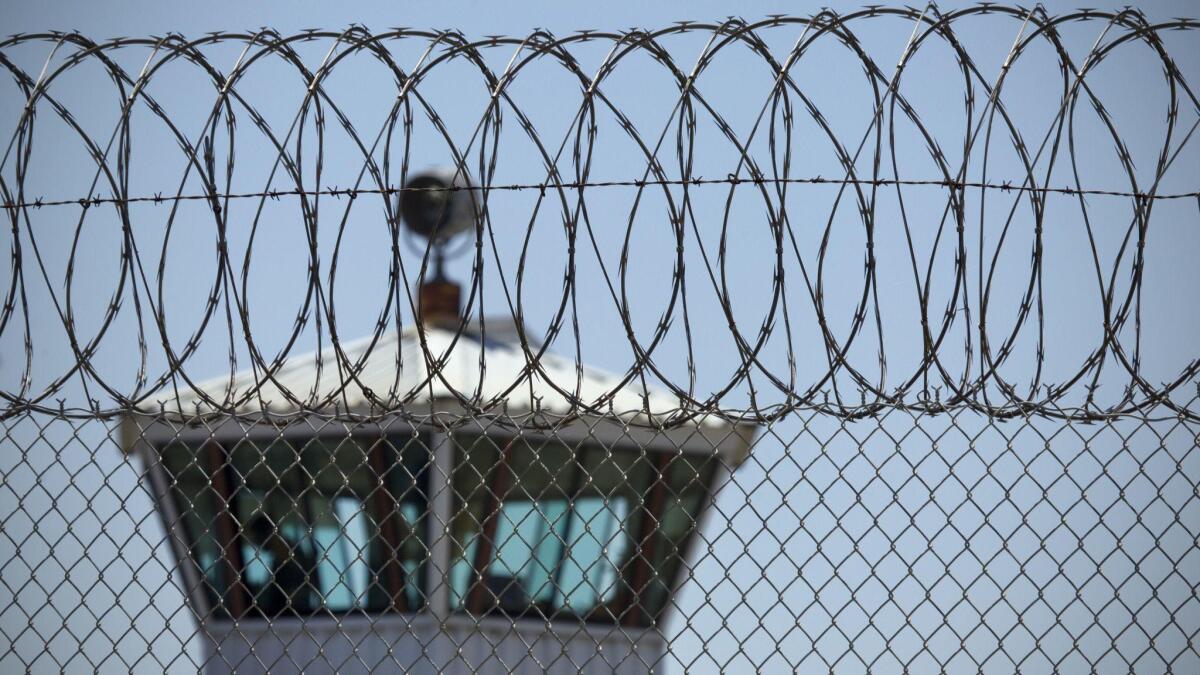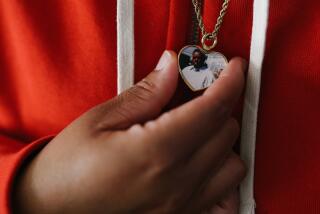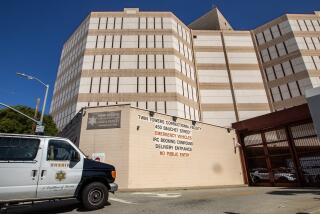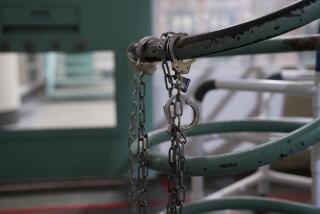Bad smell leads San Diego County prison officials to inmate who’d been dead 2 or 3 days

An inmate at the state prison in Otay Mesa was dead for days last April before prison staffers realized it, according to a recently released autopsy report.
Staffers initially blamed the smell on the sewer system. And during that time, the man’s cellmate discouraged people from checking on the already dead inmate, who was under a blanket on his bunk at Richard J. Donovan Correctional Facility.
The cellmate, it turns out, was serving time for homicide in connection with the death of his own father, whose decomposed body had been found under a mattress in his home.
The medical examiner’s office, which released the report earlier this month, said James Acuna’s cause of death was “undetermined,” noting it was possible the 58-year-old inmate serving a third prison term died of natural causes.
Last year, sheriff’s department officials said Acuna had been dead two to three days before he was found.
The investigative narrative and autopsy report — in which information gleaned from medical records is redacted — provides a glimpse into the death of Acuna, who was found in his cell in the late morning of April 24, 2017, his blanket pulled over his head.
The report indicates that, at one point, the smell from Acuna’s two-man, second-floor cell brought complaints from other inmates and prompted staffers to put in a work order, suspecting there was a sewer problem.
But the report provides little in the way of specifics, including the identity of Acuna’s cellmate.
It is also unclear how staffers were unaware of Acuna’s death, despite daily routine head counts, including a count during which inmates are required to stand at their cell doors.
Sheriff’s homicide detectives — who handled the investigation — determined that no homicide had occurred.
Sheriff’s Lt. Rich Williams said a number of factors went into that conclusion, including an absence of trauma to the body. Investigators looked at Acuna’s medical and custodial history “as well as the overall totality of the circumstances surrounding the death.”
Williams declined to provide details into what Acuna’s cellmate told investigators, including why he did not report the man’s death to prison staffers, or whether the cellmate suffers any sort of mental illness.
A spokeswoman with the California Department of Corrections and Rehabilitation, which runs the state’s prisons, also declined to identify or discuss the cellmate, citing privacy reasons. It remains unclear what the cellmate’s conviction was or how his own father died and ended up under a mattress.
And as to how the death could have gone unnoticed for at least two days, the spokeswoman, Vicky Waters, said that question remains under scrutiny.
“Our internal and administrative investigations are still ongoing,” Waters said, “and once they are concluded, we will hold staff accountable if any wrongdoing is found.”
Inmates last saw Acuna on April 21, 2017 — three days before he was found dead — when he was playing soccer. At that time, he had no complaints, according to the autopsy report.
The next day, an inmate stopped by Acuna’s cell, but Acuna’s cellmate shooed him away, telling him not to come in because Acuna — on the bottom bunk under a blanket — had the flu.
The day after that brought complaints of an odor from Acuna’s cell, followed by a work-order request by staffers.
On the third day, April 24, 2017, Acuna’s cellmate didn’t want staffers to come into the cell or check on Acuna, according to the report, but staff “made entry” into the cell and found his body decomposing.
The autopsy showed that Acuna had various ailments but documented no natural disease or traumatic injury. Although he was not showing any symptoms of illness when he was last seen, Acuna could have died of natural causes. The redacted report notes that a homicide could not be completely excluded.
Figueroa writes for the San Diego Union-Tribune.
More to Read
Start your day right
Sign up for Essential California for news, features and recommendations from the L.A. Times and beyond in your inbox six days a week.
You may occasionally receive promotional content from the Los Angeles Times.






